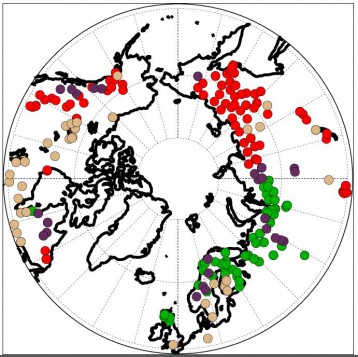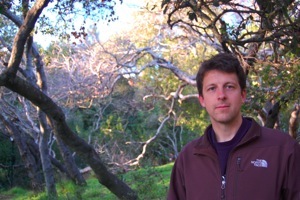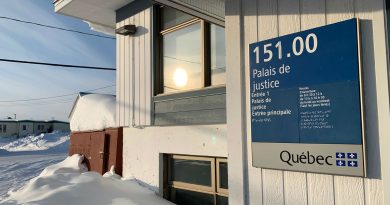Feature Interview: What tree rings tell us about climate in the Arctic

(Courtesy Zan Stine)
Tree rings in the Arctic hold important information about the northern environment.
But the so called ‘divergence problem,’ that is the difference between temperatures measured by thermometers and those gauged through tree rings since the 1950s, has long been unclear.
But a new study published in the journal Nature Communications sheds light on this question.

Especially, when it came to data provided by trees in northwestern Russia, some parts of Scandinavia and the Canadian province of Quebec.
“This under prediction of temperature by the tree rings is most prevalent in locations that are cloudy,” said Zan Stine, an assistant professor at San Francisco State University who authored the study.
“If you go to the sunniest regions of the Arctic you don’t’ see anything at all. You see the tree rings are perfectly capturing all the variability, both the year to year variability and the longterm trends in temperature.”

Related stories from around the Arctic:
Canada: Concerns about Canada’s boreal forest, The Canadian Press
Finland: Insect wrecks havoc on Finnish spruce trees; global warming to blame?, Yle News
Sweden: Weather deals double blow to Sweden’s timber industry, Radio Sweden
United States: White spruce may thrive as temperatures warm across subarctic Alaska, Alaska Dispatch



